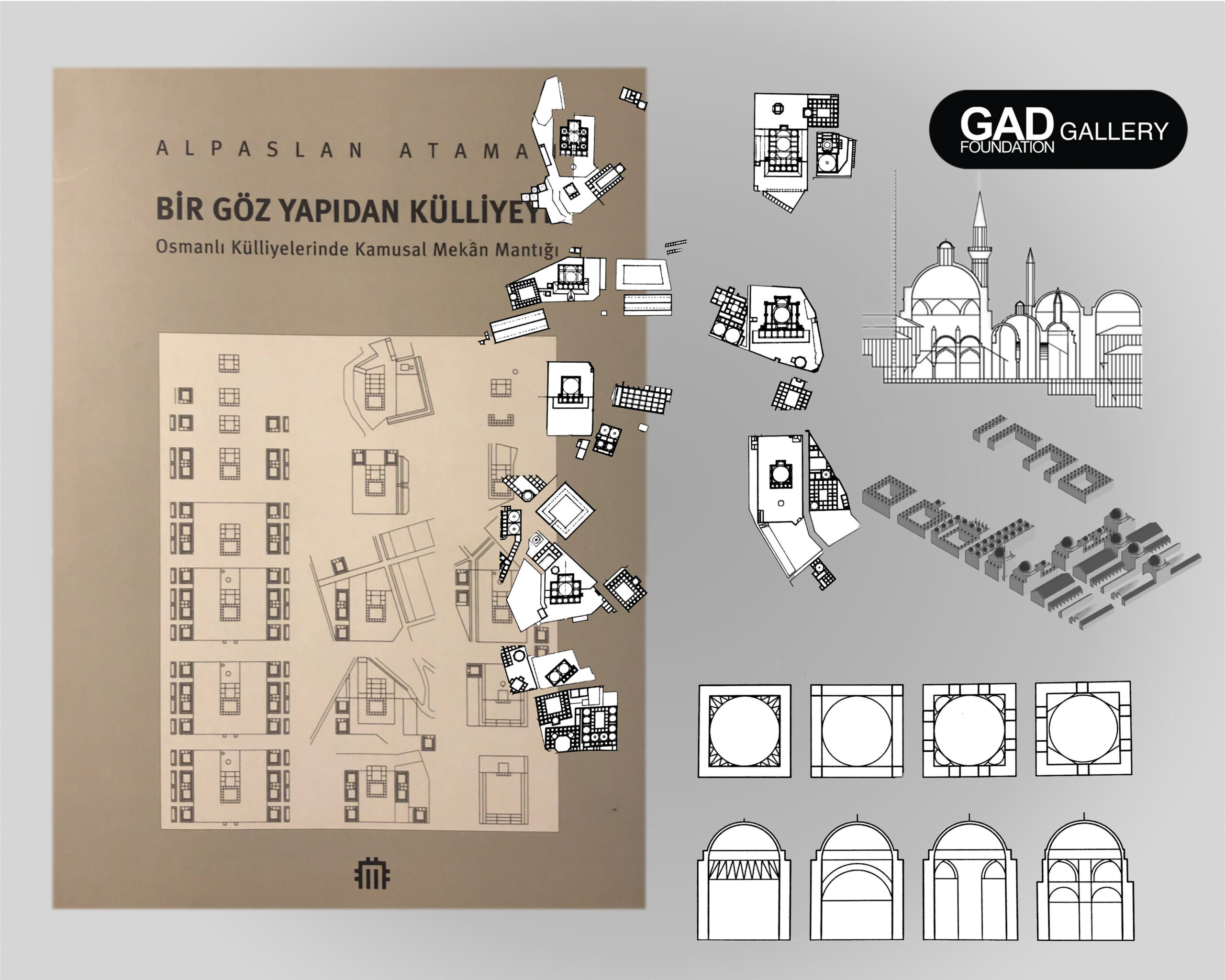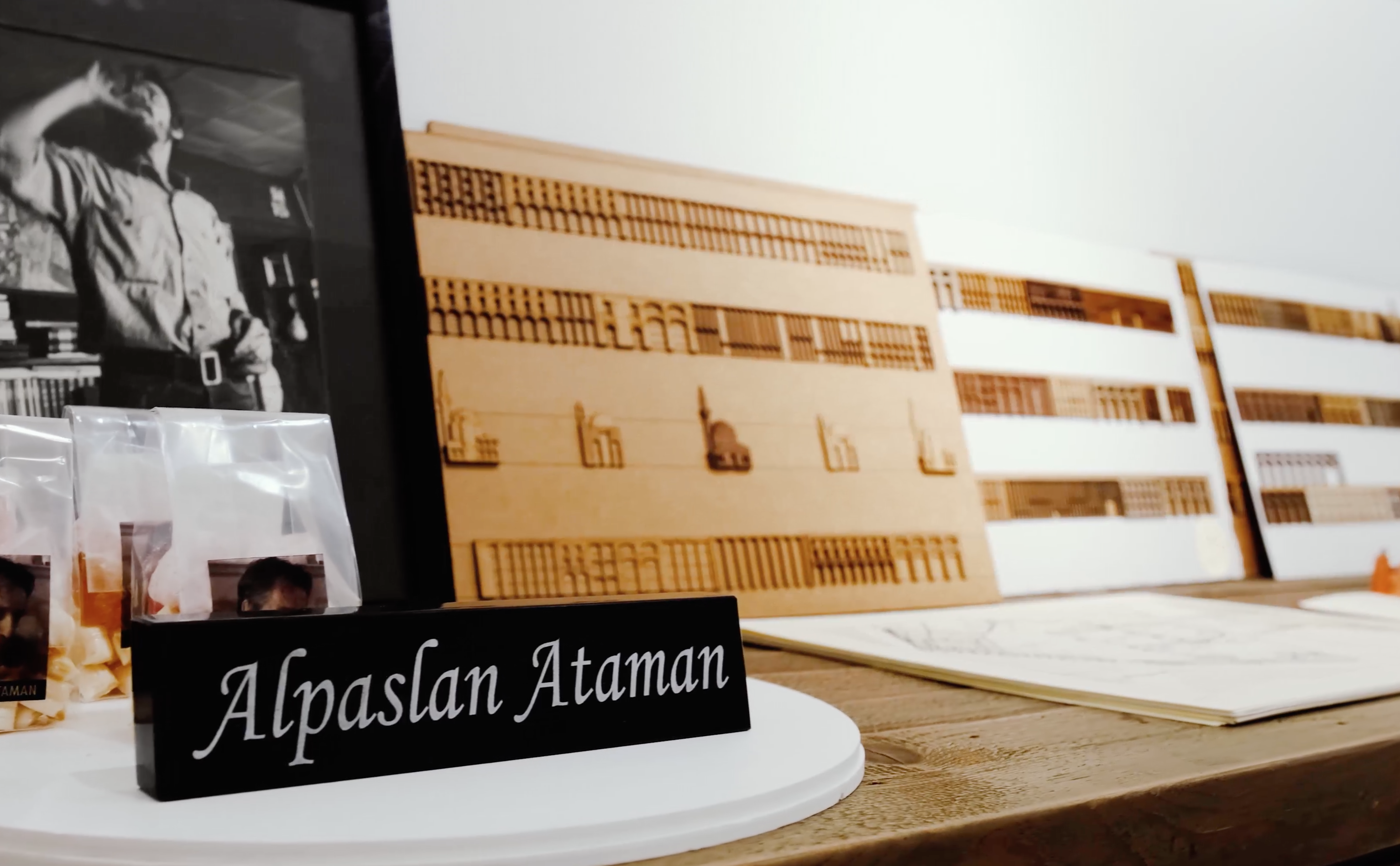GAD GALLERY
TIMELESS ARCHITECTURE EXHIBITION
”This exhibition that took place in 2021 was the first time Ataman’s archive was opened to the public. The GAD Foundation has collected Ataman's drawings from the last 40 years into an “Open Archive” to show his unique output and the working method of his office.
Alpaslan Ataman Quotes

The Timeless Spatial Typology of Ataman’s Drawings of Ottoman Architecture
Alpaslan Ataman was an architect, researcher and intellect, a crucial figure who connected Ottoman urbanism to our modern world. He provided research in the form of his drawings of Ottoman architecture that analysed the planning and organisation of this history based on spatial typology. Working especially through his hand drawings of existent and no longer present Ottoman buildings, these detailed architectural drawings show us the world of architecture and urbanism of especially Ottoman Istanbul that was an important contribution to contemporary architectural discourse in Turkey. This exhibition of Alpaslan Ataman, “Timeless Architecture” explores the geometry of the Ottoman system as it relates to a larger understanding of architecture in Western Civilization.
WHO IS ALPASLAN ATAMAN?
Alpaslan Ataman was an architect, researcher and intellect, a crucial figure who connected Ottoman urbanism to our modern world.
Alpaslan Ataman after graduating from The Academy of Fine Arts Istanbul with a degree in architecture, he went onto work in many architectural and urban projects in Turkey, USA and UK, also teaching architecture in Istanbul in various time periods at Mimar Sinan University and Yildiz Technical University. For many years he worked in collaboration with the noted 20th century architect Sedat Hakkı Eldem while continuing his career as an independent architect and researcher. He published two major books of his drawings and analysis, “Bir Göz Yapıdan Külliye’ye” and “Mimaride Cetvel Düzeni” and was working on other books at the time of his death. The drawings and the sketches in the “Bir Göz Yapıdan Külliye’ye are done with an precision and style that shows great command of architectural drawing but importantly his ambition to explore and decoding of what he has saw as the “enigma” in the code of Ottoman architecture.
In “Bir Göz Yapıdan Külliye’ye” he attempted to clarify many aspects of the Ottoman system of architecture that he felt were not understood in research on the subject up to that point:
For him it was only possible to understand and reconstruct the spatial typologies of the the many social complexes of the Ottomans Külliye, by a cross comparison of the different spatial configurations he generated through his graphic analysis. With his ingenious and passionate character and enthusiasm for architecture, he undertook this difficult task over many decades of work with a steadfast attitude towards solving this vexing problem. He managed to identify key spatial relationship of the far flung geography of Ottoman social complexes located from Baghdad to Belgrade that had never been properly understood. His modular and mathematical approach revealing an orthogonal geometric system of both architecture and city planning was realized through architectural thinking of space supported by a mathematical basis.
He commented “It is necessary to create the new from the old because, in most cases the old is containing the genes of the new“. In short the “new” happens by understanding the “old”. New or modern architecture is the abstract of the physical form of the classic architecture. Otherwise, there is no new or old place. Place is place in all periods. Abstraction is making the same place with new technics and materials by increasing the sense of habitation and comfort. Historic architecture contains of codes, adaptations and patterns. The additions made with slight changes of the fundamentals of the past creates the “new”. This order is open for infinite development. If the main archetypal space is old additions can make them new. If there is no sense of archetypal space this means that the basic discipline is not present, the outcome becomes too different, too new and the result will be unpredictable.”
In this way he argued that all human civilization has an underlying spatial order reflected in a Timeless Architecture that he believed was best expressed in the Ottoman system of architecture. His numerous drawings and analysis points to this code in a graphic and architecturally expressive manner that is a significant contribution to a holistic view of global architecture.
#TIMELESSARCHITECTURE
Alpaslan Ataman, Timeless Architecture
Open Archive Exhibition by the GAD Foundation
